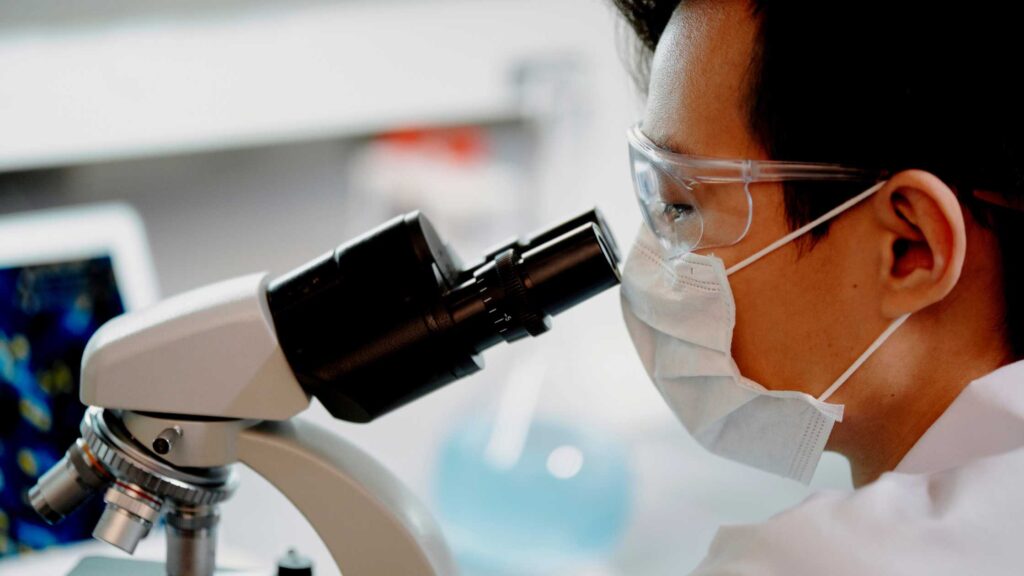If you are wondering what are the symptoms of monkeypox, you’ve come to the right place. Read on to learn about the symptoms of monkeypox, incubation period, treatment, and prevention. Incubation period: The incubation period for monkeypox is usually 6 to 13 days. However, it can range from five to twenty-one days. If you suspect that you or a member of your family is infected, you should consult a medical professional.
Monkeypox is a Mild Illness
Although monkeypox is a mild illness that passes quickly, it is potentially serious, especially in children and those with weak immune systems. It may cause thousands of lesions to grow in one area of skin and can even result in the loss of large sections of skin at a time. It is a relatively rare disease, and the most common form affects monkeys, not humans. The first reported human case of monkeypox was in a man from Massachusetts who had traveled to Canada. The disease appeared first on his anus and face. The patient also reported feeling flu-like symptoms and sores on his face.
Symptoms of monkeypox include fever, body aches, and swollen lymph nodes. The rash begins on the skin and goes through various stages, with red, flat spots that eventually turn into bumps filled with pus. These bumps may be painful and can develop into raised lesions. If you have the virus, seek medical attention to ensure you are not contagious. The symptoms of monkeypox can last for five to 21 days, and you should seek medical attention immediately if you suspect you have it.
Rash May Appear
A rash may appear within one to three days after fever develops. Most people experience the rash on their faces and extremities, with the exception of the eyes, genitalia, and rectum. Lesions may also appear on the conjunctiva, cornea, or penis. Lesions usually evolve sequentially from papules and macules to pustules and crusts. The number of lesions may range from one to thousands.
According to the Centers for Disease Control and Prevention, the U.S. has reported nearly seven thousand cases of monkeypox in children and adults. While the disease is most commonly spread among men who have sexual intercourse, the CDC notes that Black and Hispanic people are disproportionately affected by the infection. A recent study also found that the incidence of monkeypox in gay men was increased by nearly sevenfold.
More Prevalent In the UK
Monkeypox has become more prevalent in the UK recently. It is typically found in monkeys in the wild but has been detected in lab monkeys for research purposes. Although most cases are found in Central and West Africa, health officials have reported cases of monkeypox in people outside of these regions as recently as May 2022. This infection is not particularly dangerous, although it is still best avoided. When it occurs, the symptoms of monkeypox will appear within five to 21 days.
Monkeypox symptoms begin with rash, swollen lymph nodes and flu-like symptoms. The sores will develop in multiple stages before they are healed. Monkeypox sores may be found on the hands, chest, genitals, or other areas. They are infectious until they scab and crust over. It is important to avoid direct contact with infected individuals.
Avoid Spreading the Disease to Others
Exposure to monkeypox may occur through unprotected cuddling, touching infected persons, or sharing fabrics. Health workers should take appropriate precautions to avoid spreading the disease to others. Symptoms should be well-covered, and individuals with rash should seek prompt medical care. People with monkeypox should seek medical treatment as soon as possible. Some people may not experience any symptoms. However, if the symptoms of monkeypox develop, health workers should take proper precautions.
A new report by the CDC shows that about 7,500 people have been diagnosed with monkeypox in the U.S. since the virus has been found in body fluids. It is unclear whether sexual activity or close physical contact is the most common route for transmission of the virus. However, people with close sexual contact are at a higher risk of getting monkeypox. In addition, people who have sex with other men are at a higher risk of getting monkeypox than those who have not had contact with monkeypox.
Pregnant Women with Monkeypox
While there are few fatal cases of monkeypox, the virus can cause severe complications if it reaches pregnant women. In some instances, a woman may develop preterm labor when she is exposed to monkeypox. This causes malnutrition, which results in the premature birth of a baby. Even worse, if the child is not exposed to monkeypox, she may still die of malnutrition.
During pregnancy, women with symptoms of monkeypox should seek medical advice from a maternal-fetal specialist. This is particularly important if she is infected with the virus. The virus can cause serious infection within the uterus. Therefore, the treatment of the infection during pregnancy should be focused on alleviating the symptoms and preventing complications. While treating the symptoms of monkeypox is still largely experimental, medical professionals can make use of vaccines and antivirals. However, they must complete extensive paperwork and obtain informed consent before using the drugs.
Treatment for Monkeypox
Monkeypox is spread from person to person by close physical contact with an infected person. It can be spread through contact with skin lesions and respiratory droplets, or through close physical contact with infected animals, such as monkeys. It is not highly contagious but is transmitted easily through clothing and linen. Treatment for monkeypox symptoms varies and a doctor’s care may be necessary.
The illness lasts two to four weeks, and is relatively mild in adults, though it can be more severe in infants and young children. It can be a life-threatening condition if the person has a weakened immune system or if they are pregnant. A high fever is one of the primary symptoms of monkeypox, and a severe case can cause corneal scarring and permanent loss of vision.
Contact Your Local Hospital or Health Department
If you suspect that you or someone you know has monkeypox, contact your local hospital or health department. It is best to wash your hands frequently and never use public transportation while infected. Hand sanitizers with 60% alcohol are ideal for visibly soiled hands. In addition, avoid touching contaminated objects and personal items. Also, avoid touching the affected area until the lesions have healed. While the infection may last for weeks, you can begin to use soap and water to treat your symptoms.
Incubation period of monkeypox is 6 to 13 days but may last up to 21 days. Treatment for monkeypox symptoms depends on the type of infection. Symptoms may appear anywhere on the body including the mouth, eyes, and genitals. A fever or rash may appear anywhere between two and 21 days. You must also avoid close contact with monkeypox-infected individuals to avoid getting infected.
Stay Home & Isolate from Others
If you suspect you have monkeypox, stay home and isolate from others. If you have active symptoms, wear a face mask to avoid exposing yourself to other people and animals. Vaccination is a good option. The vaccines JYNNEOS, Imvamune, and ACAM2000 are all licensed to prevent the disease. If you think you may have monkeypox, consult your doctor about getting vaccinated.
Fortunately, there are ways to prevent monkeypox and its symptoms. There is a vaccine available to prevent it. Additionally, there are medicines that can reduce the effects of the illness. Although the disease is rarely fatal, it poses a risk to vulnerable populations. While it’s not a sexually transmitted disease, it is contagious until the rash goes away. However, if you have an unvaccinated child, this disease can be deadly.
Best to Seek Medical Treatment
Infections of monkeypox are rare. In fact, the disease is rarely transmitted through close contact. Nonetheless, it is best to seek medical treatment if you notice a new rash or other symptoms. Prevention of monkeypox symptoms requires talking to your healthcare provider about your symptoms. If you have experienced monkeypox, you should know whether you should get the vaccine or other treatments. The vaccine is available in a variety of strengths, including a high-dose vaccine.
If you suspect you have monkeypox, visit a doctor as soon as possible. Symptoms of monkeypox can be similar to STIs. Some people experience genital or anus rash. Others experience rectal pain, which is a sign of proctitis, a painful inflammation of the rectum. As with any rash, these symptoms should be reported to a health care provider as soon as possible.
Most Important Step in Preventing the Disease
During the first few weeks after contracting monkeypox, the most important step in preventing the disease is prevention. Avoid contact with infected people. Ensure personal hygiene by washing hands with soap and water before eating or touching potentially contaminated items. Also, disinfect frequently touched surfaces and wear a mask to protect yourself from infection. And, as always, keep healthy members of your family away from the infected person.
Last Words:
The signs of monkeypox include fever, swollen glands, and a rash. If you have been exposed to monkeypox, you should isolate yourself from others and follow the instructions of your health care provider. Suppose you notice any of these symptoms, contact your local health department for further advice and treatment. If you have been exposed to monkeypox, you must contact your health care provider as soon as possible.






More Stories
The Advantages and Disadvantages of Diamond Braces
The NYC Doe Health Screening | Completely Guide 2022
Liberty Health Sciences: Investor & Operator in the Medical Cannabis Industry